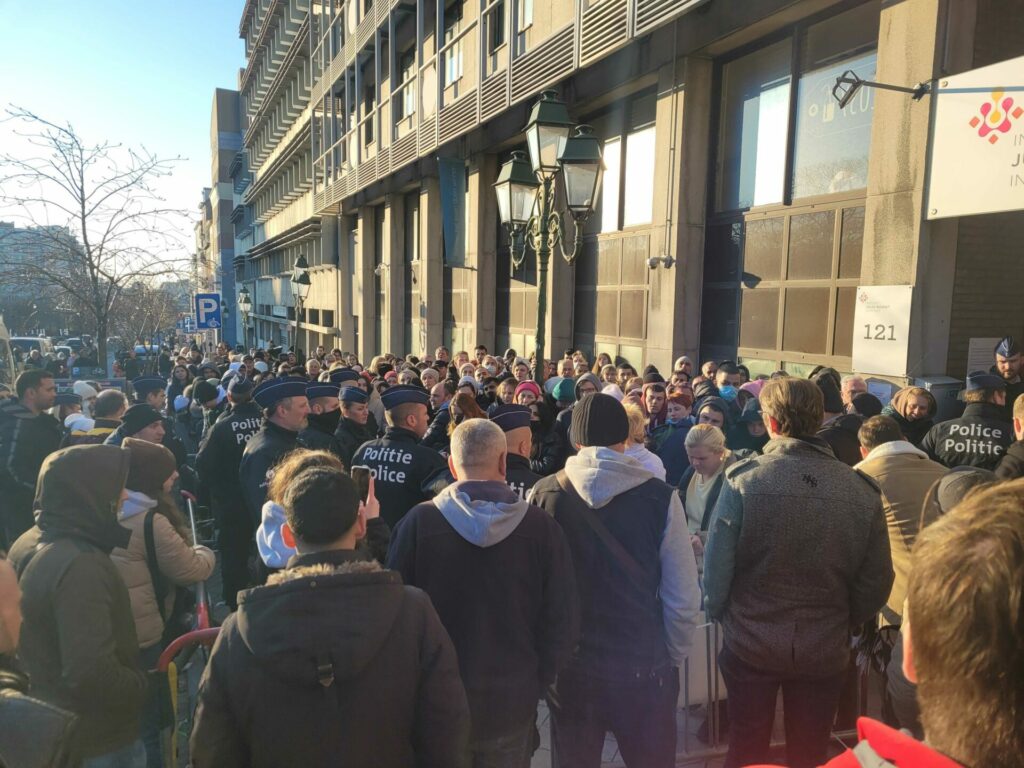Ukrainian refugees arriving in Belgium are entitled to residence permits, a living wage and medical care, among others, but to get there, they have to go through an administrative jungle, which in Antwerp has proven more difficult than in other places.
In a recent Terzake report, host families who receive Ukrainian refugees complained about the "extremely slow handling" of administrative dossiers by the city services, arguing that the amount of red tape is causing financial issues. This was confirmed by Vasyl, a Ukrainian refugee in Brussels.
"People are given an appointment to receive the needed documents in two or three months. One man who came here with his wife and children contacted me for help because he couldn't get an appointment before 7 June," Vasyl told The Brussels Times.
He said that in Brussels, he and his partner "faced the Belgian bureaucracy and the deceit of civil servants in the communes", but that there were much worse situations in other communes and cities.
"The man in Antwerp can’t get financial help for his family, he can’t go get a job, he can't open a bank account, he just has to sit at home to wait until 7 June. It is clear they are creating conditions so that people would get fed up and leave the country or city," he added.
Related News
- 82 years ago, Belgians were refugees too
- Belgium has only resettled 17 asylum seekers in 2022
- Call centre dedicated to Ukraine conflict handles over 6,000 calls in one month
Antwerp's administration has reportedly had to process 3,000 files of Ukrainian refugees in recent weeks, which has proven to be a particularly difficult task. If the documents are not processed, refugees are not able to get a job or financial aid, which is resulting in some host families getting into financial difficulties.
In the Terzake report, families questioned the preparedness of the city's administration to deal with the reception of refugees and argued that the processing capacity in communes should be increased.
Federal approach to 'blame for chaos'
In response to the claims, the mayor of Antwerp Bart De Wever recognised that there were some administrative problems, but stressed that "3,000 extra inhabitants are not easy to handle."
He refuted the criticism that the city was not prepared, and instead blamed the Federal Government's approach to the crisis for the chaos, which he argued placed "all the burden on the cities and towns."
"We should have focused on collective reception as the Netherlands does. It was also a mistake to give people a social status that leads to a living wage. That leads to a chaotic influx.”
However, he added that in the coming days, “the most urgent problems will be solved," and that all people will be contacted to have their documents sent to them digitally.

